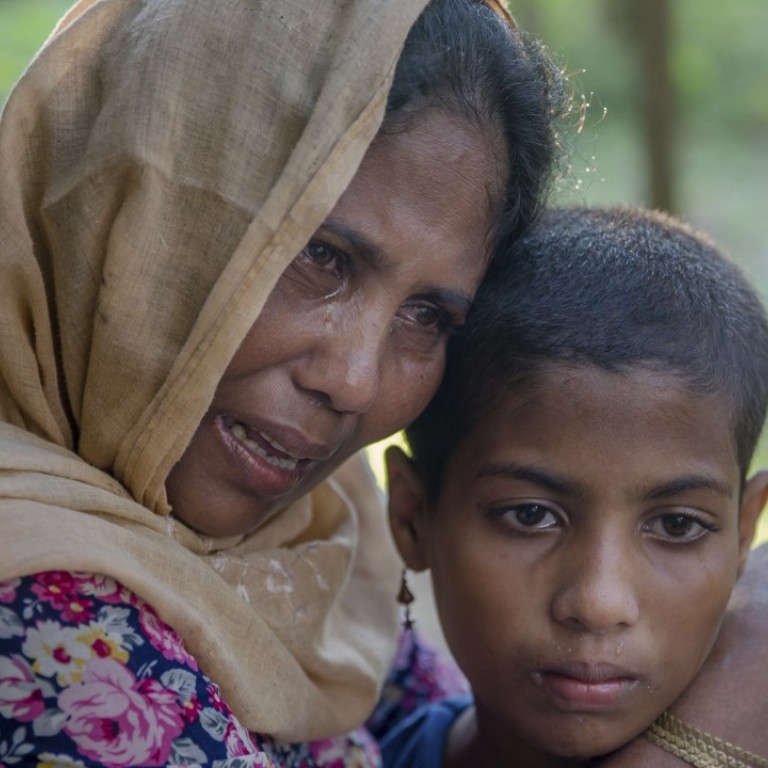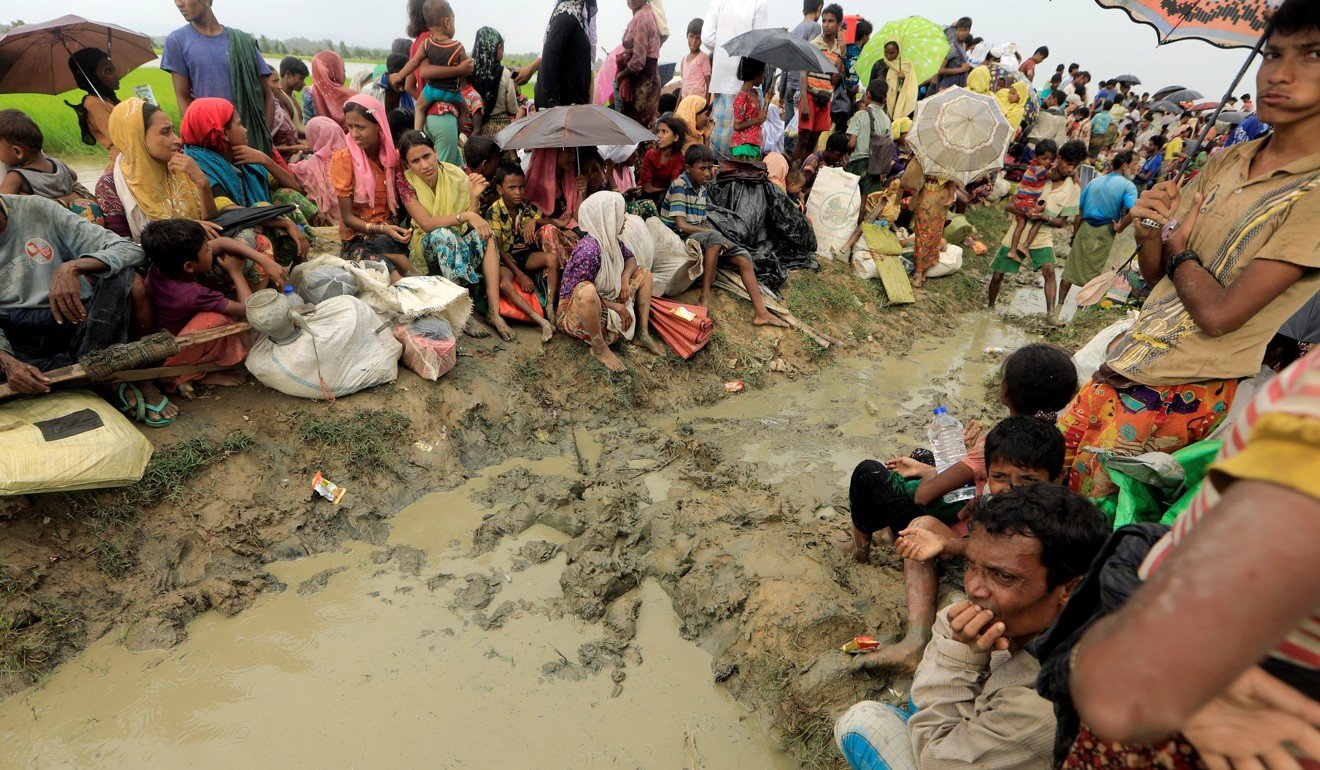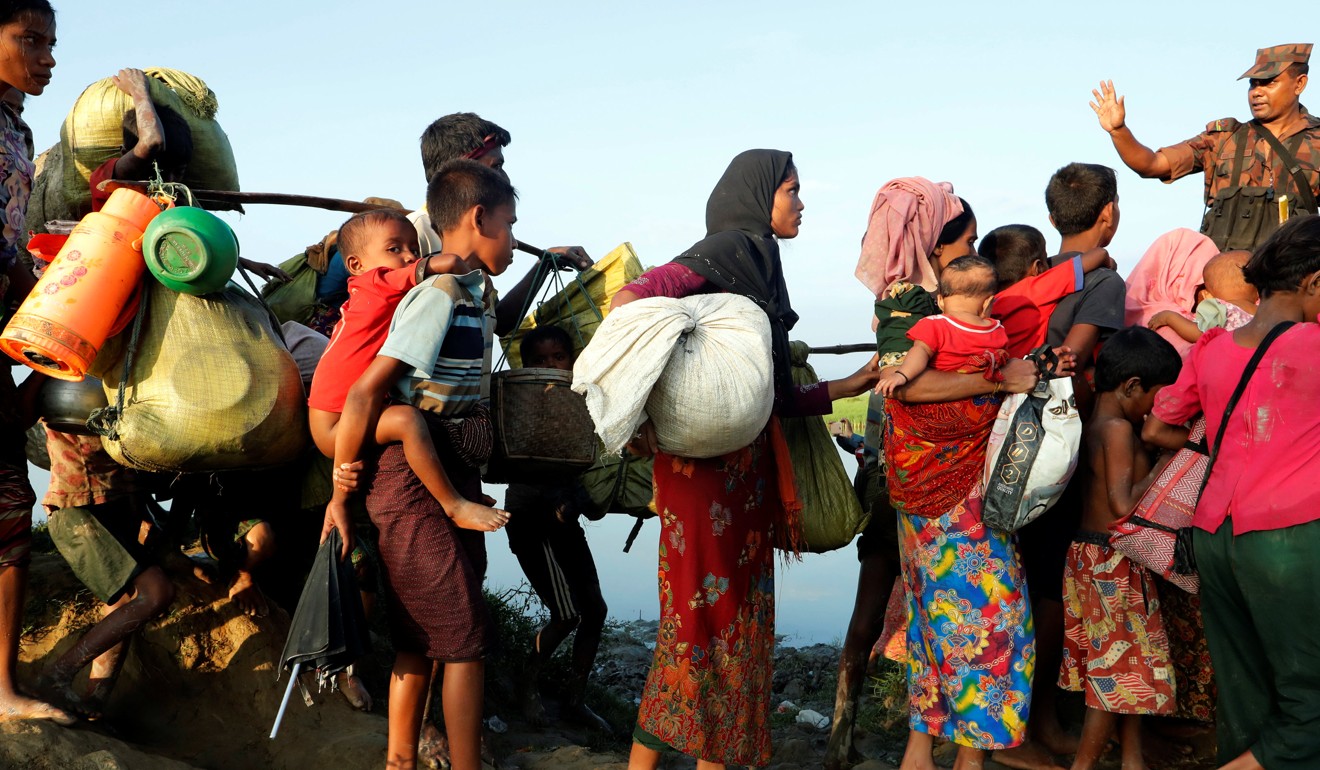
12 drown as Rohingya boat sinks off Bangladesh
An overcrowded boat carrying Rohingya Muslims fleeing Myanmar capsized on Monday in the Bay of Bengal near a Bangladeshi fishing village, killing 12 people, including six children, police said.
Survivors told local officials that up to 65 people were on board and almost half of them were children, local police official Sheikh Ashrafuzzaman said. The accident occurred as the boat was approaching Shah Porir Dwip in Teknaf in the Cox’s Bazar district bordering Myanmar’s Rakhine state.
Nearly 200 Rohingya are known to have drowned over the last six weeks making the perilous crossing to Bangladesh, many in small wooden fishing boats that are dangerously overloaded.
“The accident happened during early morning prayers,” said Shams Uddin, a local resident who witnessed the disaster. “I think the boat overturned as the boatmen tried to reach the shore against the returning currents.”

Fazlul Haq, a local official, said the boat was owned by a Bangladeshi villager who had made large sums of money ferrying Rohingya into the country.
He said the small fishing trawlers were highly vulnerable to accidents as they approached the shore, where they are often buffeted by large waves.
The latest accident came a week after another boat packed with Rohingya refugees capsized in the area, killing at least 34 people including many children.
Some 536,000 Rohingya have arrived in Bangladesh over the last seven weeks, fleeing violence in Myanmar’s Rakhine state, where the United Nations has accused troops of waging an ethnic cleansing campaign against them.
The stateless Muslim minority has faced decades of persecution in mainly Buddhist Myanmar.
Hundreds of thousands of Rohingya have fled Myanmar since August 25. Myanmar’s military has said it launched clearance operations in response to terrorist attacks, but the UN and others have said Myanmar’s response was disproportionate. The refugees have described widespread and indiscriminate violence and arsons.
Bangladeshi Prime Minister Sheikh Hasina said her government will continue to support the Rohingya, but that Myanmar must take them back.

The influx has slowed in recent weeks, but thousands are still entering Bangladesh, which has allocated 3,000 acres (1,214 hectares) of forest land to create the world’s largest refugee camp.
Many of the new arrivals have already occupied the land and built their own makeshift shelters.
Dhaka has made clear it wants the Rohingya to return to Myanmar, where many of their villages have been burned to the ground.
On Friday former UN chief Kofi Annan urged the Security Council to push for their return, saying world powers must work with Myanmar’s military and civilian leaders to end the refugee crisis.

.png?itok=arIb17P0)
